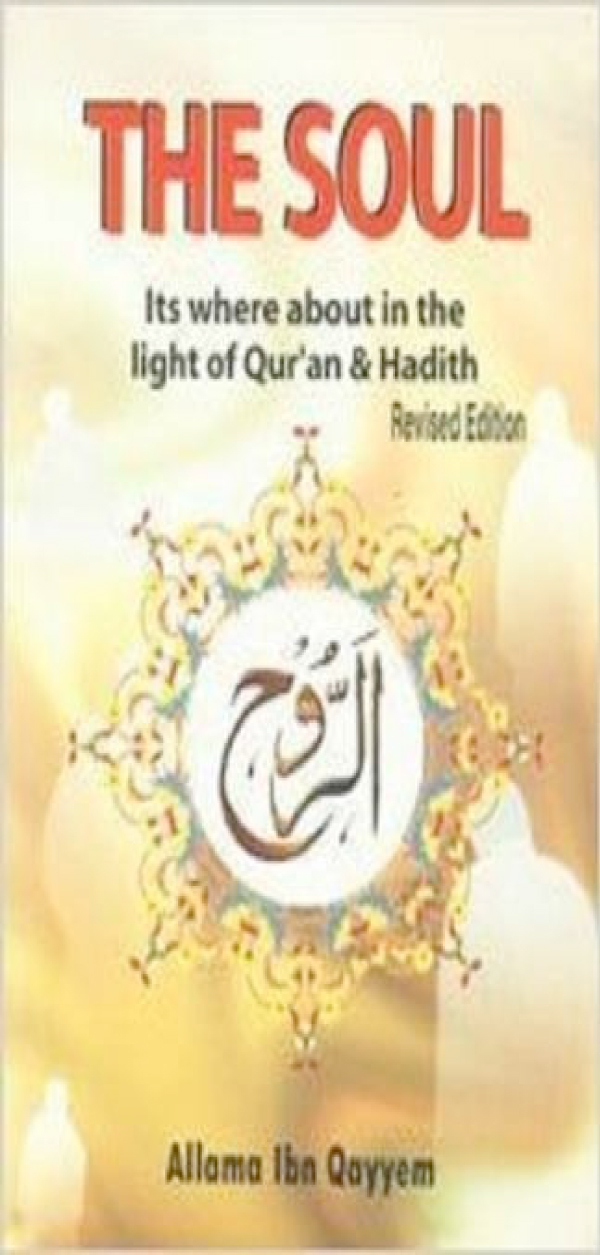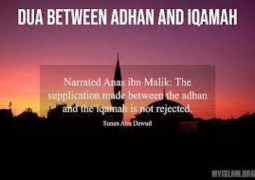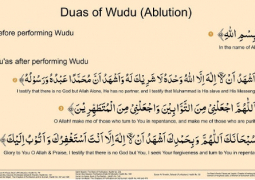
Ibn al-Qayyim dealt with this subject under a separate chapter in which he mentions opinions of various scholars concerning the abode of souls. Mentioning the most correct position he explained, “It is said that the abodes of the souls in Barzakh vary considerably. Some of them are in the highest reaches of the heavens, such as the souls of the Prophets, peace be upon them all. Their status also varies as observed by the Prophet, peace be upon him, during the night of Isra.”
Some souls are in the form of green birds who roam around freely in Paradise. These are the souls of some of the martyrs, but not all of them. The souls of some martyrs are prevented from entering Paradise on account of their debts or some other similar thing. This is supported by a report by Ibn Hanbal in his Musnad from Muhammad ibn Abdallah ibn Jahsh that “A man came to the Prophet, peace be upon him, and asked, ‘O Allah’s Prophet! What would I have if I am killed in the cause of Allah?’ The Prophet, peace be upon him, replied, ‘Paradise.’ But, when the man got up to go, the Prophet added, ‘Unless you have some debts to pay. Gabriel has informed me about it just now’.”
Some souls will be locked out at the gate of Paradise, in accordance with this hadith: “I have seen your companion locked out at the gate of Paradise.” Other souls are restricted to their graves as is evident from the hadith about the martyr who had stolen a cloak (He had stolen it out of the spoils of war before their proper distribution) when he was killed, the people asked, “Will he have bliss in Paradise?” The Prophet, peace be upon him, said, “By Him in whose hand is my soul, the cloak which he stole causes a fire to flare over him in his grave.”
The abode of others is at the gate of Paradise, as described in a hadith by Ibn ‘Abbas that, “The abode of martyrs is in a green dome, on a bright river, near the gate of Paradise. Their provision comes from Paradise in the morning and in the evening.’’ (Ahmad) This does not apply to Ja’far ibn Abi Talib, whose hands were transformed into wings, and with these he flies wherever he wishes in Paradise.
Others remain confined to earth, for these souls cannot rise to heaven. Indeed, these are base, earthly souls which do not mix with the heavenly souls, just as they do not mix with them during their sojourn on earth. A soul that is oblivious to its Lord, blind to His love, negligent of His remembrance, and remiss in seeking His pleasure is a despicable earthly soul. After separation from its body, it cannot go anywhere, but remains here. On the other hand, the heavenly soul in this life clings to the love of Allah and to His remembrance, and seeks His pleasure and nearness. After separation from its body, it will join other kindred heavenly souls. In the barzakh (Literally an interval, a separation or a partition, Al-barzakh may be defined as the intervening state between death and the Last Day) and on the Day of Resurrection a person will be with those he loved. Allah will join some souls with others in the abode of barzakh and on the Day of Resurrection, placing the believer’s soul with other pure souls, that is, other pure souls kindred to his soul. A soul, after separation from the body, joins other kindred souls who in their nature and deeds are similar to it and stays with them.
Some souls would be thrown in an oven or a pit along with other fornicators and harlots. Other souls would be in a river of blood, floating therein and swallowing rocks. The two categories of souls - the blessed and the damned - do not share a similar abode, for there are souls that reside in the highest reaches of heavens, while the others, low and mean earthly souls, cannot rise above the earth.
When one ponders the hadith and traditions on this subject carefully, one can easily find the reason for this. There is no contradiction in the sound traditions on this subject. In fact, they are all true and each supports the other. It is important, however, to understand the soul and to appreciate its essence and the laws that govern its functions. Indeed, the soul is something completely different from the body. It is in Paradise, but at the same time is attached to the grave and the body in it. It is the swiftest thing in moving, relocating, ascending, or descending from one place to another. These souls are divided into various categories: the ones that are free to move about, those that are confined, the ones that are celestial, and the others that are earthly and of a low order. After separation from their bodies, souls do experience health and sickness, and they feel far more pleasure and pain than they experienced when they were joined together. They are subject to confinement, pain, punishment, sickness, and grief as they are to various states of joy, rest, bliss, and freedom. How similar is its condition in the body to when it was in the womb of its mother! And likewise how analogous is its situation after separation from the body to when it came out of the womb into this world! There are four abodes of the soul, and each abode is bigger and greater than the previous one.
The soul’s first abode is the womb of the mother, where there is confinement, compression, seclusion, and three layers of darkness. The second abode is its earthly habitat where it grows, does good and evil, and accumulates blessings for its ultimate success or failure. Its third abode is the abode of Barzakh, which is more spacious and immense than the abode of this world. This abode, compared to the fourth one, is like this [third] abode compared to the first abode.
The fourth abode is the abode of eternity, either Paradise or Hell. There is no other abode after these. Allah causes the soul to pass through these abodes in stages, until it reaches the abode most suitable for it, an abode that only it deserves and for which it is [uniquely] suitable, because this abode was created for it, and the soul was given the ability to perform the deeds that lead precisely to this abode.
In each abode the soul enjoys a peculiar status and position altogether different from what it has in other abodes. Blessed indeed is soul’s Originator and Creator, Who gives it life, causes it to die, makes it happy or subjects it grief and sorrow. Blessed is He Who appointed for it various levels of success and failure, and distinguished them by various grades in accordance with their knowledge, performance, faculties, and morality. Whoever truly understands and appreciates this cannot, but bear witness to the fact that there is no deity except Allah, Who has no partners. With Him alone rests all authority, praise, and all that is good, and to Him alone all affairs return for decision. His is the absolute authority, and all dominion, might, honor, wisdom, and perfection free of any defects or imperfections. He is known through the testimony of His truthful Prophets and Messengers. They did indeed come with Truth. Reason testifies to its truthfulness, and nature supports and confirms it. And anything that contradicts this testimony is untrue.
To be continued
Read Other Articles In Muslims Hands
FUNERAL PRAYERS : Permit Women to Accompany a Funeral Procession
Nov 6, 2020, 12:04 PM



